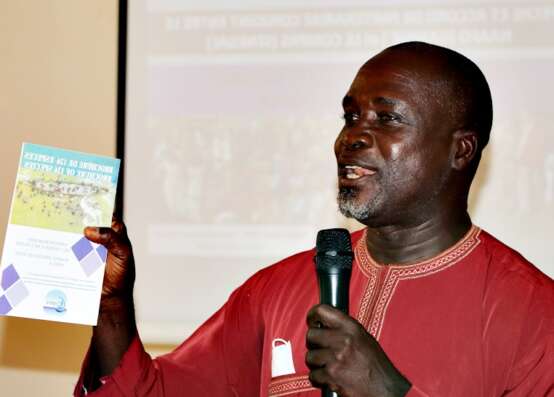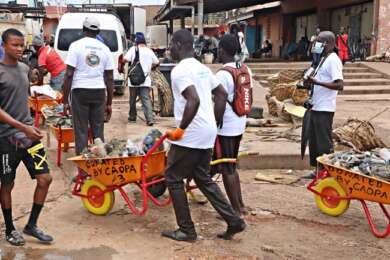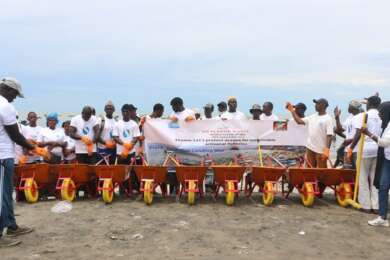The Gambia hosted from 17 to 18 September 2021, a training workshop for artisanal fisheries professionals from Senegal and The Gambia. Under the theme: “Training on management of resources: Case of small pelagic“, the workshop was organized by the African Confederation of Professional Organizations of Artisanal Fisheries (CAOPA) in partnership with the National Association of Artisanal Fisheries Operators of The Gambia (NAAFO).
 The objective of the workshop is to build capacity, skills and partnership between professional organizations and government to improve the co-management of fisheries resources for the benefit of present and future generations.
The objective of the workshop is to build capacity, skills and partnership between professional organizations and government to improve the co-management of fisheries resources for the benefit of present and future generations.
It was held under the chairmanship of the Representative of the Ministry in charge of fisheries and water of The Gambia. The workshop gathered about thirty participants composed of members of NAAFO from The Gambia and CONIPAS from Senegal. The coordination team of CAOPA and the agents of the fisheries service supervised the work during the two days.
The Head of the Extension Unit of the Fisheries Department, Momodou CHAM, gave an overview of the sector in The Gambia. According to him, the country has a continental shelf of about 4,000 km2 and an exclusive economic zone (EEZ) of about 10,500 km2.
 “The Gambia has great potential to contribute to socio-economic development if the fisheries resources are managed sustainably. It is believed that the area has great potential to make a substantial contribution to the socio-economic development of The Gambia,” Mr. Cham said.
“The Gambia has great potential to contribute to socio-economic development if the fisheries resources are managed sustainably. It is believed that the area has great potential to make a substantial contribution to the socio-economic development of The Gambia,” Mr. Cham said.
In addition, he says, “more than 500 species of marine fish have been recorded in Gambian waters; they are generally classified as demersal (living on the bottom) and pelagic (living on the surface). The demersals include: shrimps, groupers, breams, grunts, crocodiles, eels, etc. The small pelagic group includes the two sardinella (Saridnella aurita and Sardinella maderensis), the bonga/alose (Ethmalosa fimbriata), the horse mackerel (Trachurus trecae, Trachurus trachurus and Caranx rhoncus) and the mackerel (Scomber japonicas).
The Secretary General of CAOPA, Dawda Fodey SAINE says that this training is important because it builds the capacity of fishermen in responsible fisheries management, including binding and non-binding fisheries instruments.
 For him, an important aspect of sustainable management is the fact that many of these resources are shared fish stocks, and exploited by fishermen from neighbouring countries, particularly Senegal. Hence, the need for regional cooperation.
For him, an important aspect of sustainable management is the fact that many of these resources are shared fish stocks, and exploited by fishermen from neighbouring countries, particularly Senegal. Hence, the need for regional cooperation.
“Fisheries being a renewable natural resource can only produce a limited amount of fish on an annual basis. Most scientific evidence and local knowledge of resource users suggest that the maximum production potential has already been reached for most fisheries resources in the region and in some cases has even been exceeded,” informed Dawda Saine.
In this case, the secretary-general says, putting in place measures to ensure the sustainability of these benefits is a key priority. He warned: “If effective governance arrangements are not put in place, the bounty that can be harvested from the sea will be put at risk, resulting in a decline in food supply and income for fishermen, fishmongers, fish processors and exporters.
The trainer of the meeting, Mamadou FAYE, Biologist, developed six modules related to: “knowing the history of fisheries development; knowing why it is necessary to manage fisheries resources; knowing the management tools and provisions at different levels: international, regional, and national; knowing what is the rational management of fisheries resources; knowing what is the co-management of fisheries resources; and knowing what is the conservation of fisheries resources.”
These training modules have great potential for replication and extension at regional and continental levels. It is planned that the training materials developed under this program will be used for further training in other regions of Africa through the facilitation and coordination of CAOPA.
The training provided a framework for improving the knowledge of participants in the management and conservation of fishery resources. A brochure of 126 West African marine species was made available to the participants. This, with the aim of leading to a change in behaviour for a sustainable management of fisheries resources.
Recommendations for a partnership between the National Association of Artisanal Fisheries Operators (NAAFO) and the National Interprofessional Council of Artisanal Fisheries in Senegal (CONIPAS) for the establishment of a joint commission were formulated.
After the two-day workshop, CAOPA supported the commemoration of World Clean-up Day (19 September) at the Tanji fish landing site in The Gambia. The support material includes 10 wheelbarrows, 10 shovels, 10 rakes, five dozen gloves, 100 T-shirts, etc.
Mamadou Aliou DIALLO
Views: 10


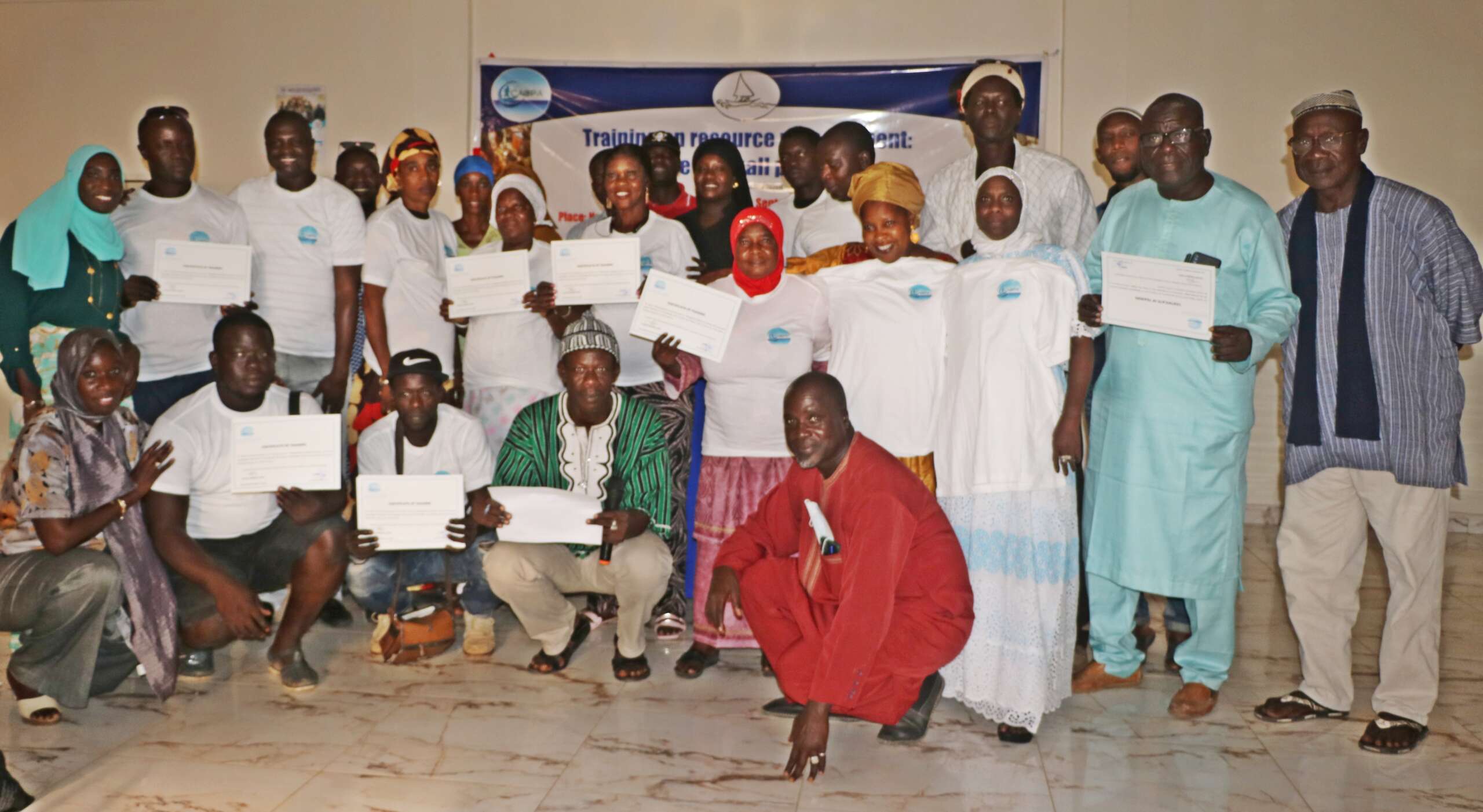
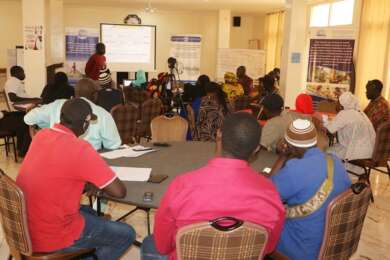 The objective of the workshop is to build capacity, skills and partnership between professional organizations and government to improve the co-management of fisheries resources for the benefit of present and future generations.
The objective of the workshop is to build capacity, skills and partnership between professional organizations and government to improve the co-management of fisheries resources for the benefit of present and future generations.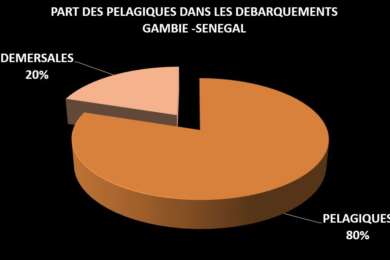 “The Gambia has great potential to contribute to socio-economic development if the fisheries resources are managed sustainably. It is believed that the area has great potential to make a substantial contribution to the socio-economic development of The Gambia,” Mr. Cham said.
“The Gambia has great potential to contribute to socio-economic development if the fisheries resources are managed sustainably. It is believed that the area has great potential to make a substantial contribution to the socio-economic development of The Gambia,” Mr. Cham said.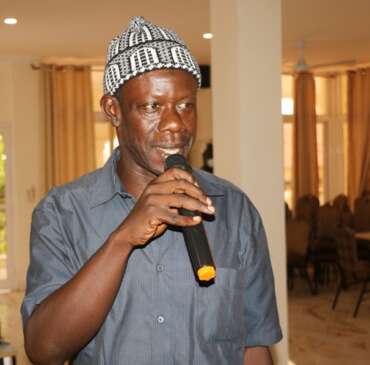 For him, an important aspect of sustainable management is the fact that many of these resources are shared fish stocks, and exploited by fishermen from neighbouring countries, particularly Senegal. Hence, the need for regional cooperation.
For him, an important aspect of sustainable management is the fact that many of these resources are shared fish stocks, and exploited by fishermen from neighbouring countries, particularly Senegal. Hence, the need for regional cooperation.